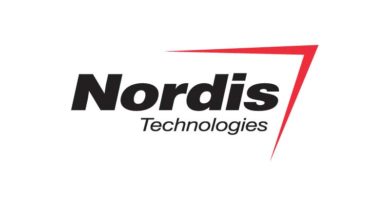Fundamentals of Resort Operation and Revenue Generation
When you make an experience thoughtful and simple it is much easier for our consumers to justify paying more for enjoyable treatment, it also subliminally sells our other activities and add-ons as well.
In the resort vacation ownership industry, it is often a question of “heads in beds” or ADR (Average Daily Rate) that seem to consume conversations about Year-Over-Year goals and new projects. The reality is that diversification should be at the apex of your focus. When we think about milking a current revenue stream for all its worth, the issue is not how much you can get from it, it is rather a sustainability. At some point, every service can evolve to leave guests with a “nickel and dime” taste in their mouth. The key is to never push that boundary. where does this line reside? As I’m sure most of you know it varies in almost every case and almost every consumer is different. So, what can we do to not only define how much revenue we should be asking for the customer experience but expand that number with humble intentions, fully considering the product a resort provides is more experiential than simply a place to stay?
Have a Centralized Dataset
First and foremost, we need to understand who our customer base is. How it’s changing from season to season, and most importantly how the consumer is interacting with your resort environment. To do this you need to have a solid data stream in place capturing not only staying customer information but also prospect customer information. This is typically handled by a property management system or multiple systems. For reporting purposes, it is highly beneficial to have a single centralized dataset so that you can cross reference data seamlessly.
So what’s to be done with all this information? Mostly demand generation because the single fastest way to increase revenue is to increase the volume of the pipeline. Once we know that guest X stayed at time Y we can now target segments of your dataset with specialized content. This includes emails, print marketing, promotions, resort incentives, and Google ads. You want it to be targeted because if you’ve spent a significant amount of money on the Duplo DC-516 Cutter Creaser and producing print media, for example, then you don’t want to just send the media off to people who aren’t interested and will only bin it. It’s a waste of money. The key here is that you are not using a blanket approach to marketing which can be costly with very little return, but rather a more precise targeted approach.
Sure that all sounds fine and good, but you may say I don’t have that time or I would have to hire people to do this. Not at all. Your property management system should take care of most of this for you with automation and start to finish pipeline tracking.
So what does that look like? If I were a guest and I google lodging in your area, I should see an ad that stands out from the rest with personalized info. This would gain my interest and lead me to your marketing site, at which point I’m confronted with your content and hopefully a clear concise location to select a product and pay for it. Essentially we want to have the simplest experience from shopping to purchasing. who, what, when, we will get to the why after the purchase is complete. At this point I will receive an automated email greeting me, informing me, and allowing me to inform.
Everyone has their own idea about how this should look so make it your own but we need to welcome the guest, inform them about the “Experience” or events happening during their stay, and finally allow them to disclose information pertaining to their stay. Do they have any allergies food or otherwise? Are they coming for an event? Birthday, honeymoon, anniversary? This information should be automatically loaded to the guest profile in your property management system.
Executing a “Curb to Curb” Experience
Bringing me to my second revenue generation tool. Expanding the guest experience. When you make an experience thoughtful and simple it is much easier for our consumers to justify paying more for enjoyable treatment, it also subliminally sells our other activities and add-ons as well. When the guest is happy and carefree experiencing your resort to the fullest they are much more likely to become a repeat customer but much more importantly they are also likely to become advocates for your business with their friends and family.
So how do we design and execute a “curb to curb” experience this starts well before the guest arrives as I have mentioned above were capturing data about the customer pre-arrival so that when they arrive, our front desk staff can greet them with a happy anniversary per the reservation notes on check-in. If their room isn’t ready or they got in early we can do a pre-check-in sending them to the pool or bar with a voucher for drinks and their room keys while we hold their bags. Make sure that your management system will text them when their room is ready and they can go up to find their bags in their room. From there we focus on the in-stay experience. This boils down to maintenance, housekeeping, activities, and dining. First, handle any issues the guest may have a sink, toilet, shower, lights, TV. Maintenance needs to have a clear concise ticketing system that they can use and update real time allowing them to focus on more pressing issues first and resolve them quickly. Your property management system should assign, update, and log all things regarding an issue and restrict placing guests in rooms with maintenance issues. Furthermore, your maintenance staff should be able to update the problem items from their smartphones allowing all interested parties to view progress in real time.
Housekeeping will have auto-generated boards each morning and night with different clean types and times created so that your housekeepers time is spent cleaning and not scrambling to finish rooms.
Activities upsell the experience
Take out a jet ski or grab a round of golf while your wife enjoys the spa, charge it back to the room account with a fully integrated POS allowing F&B, Gift shops, and activities/rentals items to all be charged back to the room seamlessly. This makes it far easier for someone to purchase an add-on and it also allows for packaging and upsells reporting which will equal opportunities.
Finally, the second the guest checks out our work is not over. They will receive a post-stay email with an option to fill out a survey for some additional resort points, or some percentage off promotion for their next stay. We also want them to share the great experience they had, so how can we incentivize them to share and ultimately increase our demand? This is where social advocacy platforms come into play. Your property management system should interface with these platforms allowing guests to be rewarded for sharing a simple story about their stay with you. Some of our largest success stories revolve around creating a “buzz” in often cases doubling revenue. Have a photo contest, inspire people to post great photos of your property for a chance to win a free stay or some other incentive. This is where the resort industry is moving and quickly at that. So if you want to make the jump from incremental YOY increases to doubling revenue, brand diversifies with superior service and guest experience, act on the bigger picture, automate your sustainability, and think full suite property management software. Your guests will thank you with dollars and your staff will greet them with smiles.
Carrington Junior is VP of Marketing and Analytics with Resort Data Processing, Inc. (RDP). RDP was named the “#1 Resort Management Software 2019” by Tech Times and was recently acknowledged as one of CIO Review’s “20 Most Promising Travel and Hospitality Tech Solution Providers.”



